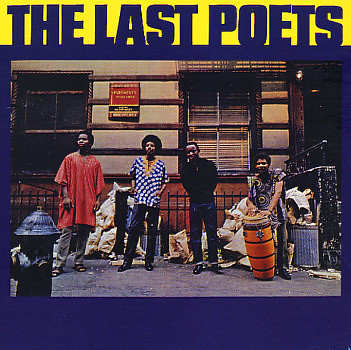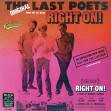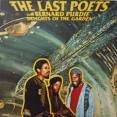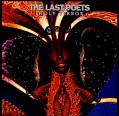Islam is at the heart of an emerging global anti-hegemonic culture that combines diasporic and local cultural elements, and blends Arab, Islamic, black and Hispanic factors to generate "a revolutionary black, Asian and Hispanic globalization, with its own dynamic counter-modernity constructed in order to fight global imperialism. (say what!)
Saturday, May 14, 2005
racial jujitsu or the more things change...
From what I gather, the basic idea is the following: We all know that in 2050 or some other magical date further down the road, white people (according to contemporary definitions) will become a minority in the United States. And the naive view (which I can't say I've completely ruled-out) is that new demographic realities will then force American society to be more inclusive and less racist in certain respects. At the very least, the more extreme forms of white supremacy which depend on majority-rule should be significantly weakened.
The bad news suggested by Yancey is that whiteness (which is a social construction anyway) will then morph in ways which will still be oppressive to Blacks. And that just as in the past other immigrant groups (Irish, Italian, Jewish, etc.) "became" white one after another, in time Asian-Americans and Hispanics will also become "white", and African-Americans will remain excluded.
"pretty sneaky sis"
takin' it to the streets
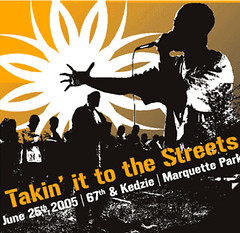
If you are going to be in Chicago on June 25, you should definitely check out Takin' It to the Streets, which is an amazingly positive day-long festival.
Featured Speakers:
Imam W.D. Mohammed, Imam Hamza Yusuf, Imam Zaid Shakir, Imam Siraj Wahhaj, Imam Umar F. Abd-Allah, Ilyasah Shabazz
Featured Performers:
Rock Steady Crew, All Natural, Jurassic 5, Brother Ali, Napoleon, MPAC, Allah Made Me Funny (National Comedy Tour), M-Team, Jamila Fidrause, Kuumba Lynx & Native Lynx
Community Forums and Workshops include:
Unity: Holding Fast to the Rope of Allah
Muslims & Hip Hop - A Forum for Outreach and Activism
Getting Involved with the Day Laborer Campaign (In Spanish and English)
Gender Issues & Islam
The Prophetic Tradition and Working for Social Justice: An Interfaith Perspective
Prisoner Reentry and Public Safety Hearings - IMAN is honored to host this public hearing as part of its work around the issues of recidivism and ex-offender reentry
Co-Sponsored by the Southwest Organizing Project (SWOP) and the Developing Justice Coalition - Please visit the the following link to understand what is entailed in conducting a public hearing:
The main organizers are the Inner-City Muslim Action Network (I.M.A.N.) and you can read about this event and their other projects on their website.
if not us, who?
How does the community organize itself in positive ways? How do we produce appropriate leadership? How do we get better, more effective organizations? Do we need to create flashy high-profile public relations - minded events? Or is it just a matter of encouraging ordinary people to come and do the quiet, non-flashy, anonymous work, and make the small but consistent contributions which improve communities.
I'm just throwing it out there
the last poets
"When the moment hatches in time's womb there will be no art talk. The only poem you will hear will be the spearpoint pivoted in the punctured marrow of the villain....Therefore we are the last poets of the world."
-South African poet, Keorapetse William Kgositsile
The Last Poets were born on May 19, 1968, at a celebration of Malcolm X's birthday. The seven (and seven seems like a fitting number) Black men who at one time or another were a part of the group are: David Nelson, Gylan Kain, Abiodun Oyewole, Felipe Luciano, Umar Bin Hassan, Jalal Nurridin, and the late Suliaman El Hadi.
Several are Muslim, but most are not. One (David Nelson) has become a Christian minister. One (Abiodun Oyewole) helped to found a Yoruba village in South Carolina. Some have re-defined themselves by giving themselves new names. Some have kept the names they were given at birth. The one Afro-Latino member (Felipe Luciano) was a co-founder of the Young Lords Party (a Puerto Rican group modelled on the Black Panthers).
The seven Black men who at one time or another were a part of the Last Poets manifested in themselves a wide and varied expression of the African-American (male) experience, both the positives and the negatives. One such negative is a minor turf war over who even gets to use the name "the Last Poets". Suliaman El-Hadi and Jalal Nuriddin, two Muslim members, have a released a few albums (with more Islamic lyrical content) under the name "Last Poets". But Abiodun Oyewole and Umar Bin Hassan have also released albums, and performed using the name as well (most recently on Def Poetry Jam). I'm not sure if religion was a part of the split between them but the lines seemed like they were drawn that way.
In the book "On a Mission", written by Umar and Abiodun (with Kim Green), Umar
says:I was into the Islamic thing for a while . It touched me, like it touches a lot of brothers who come out of the streets. The religion touches you because the first thing you learn is how to let go of arroogance, indifference, harshness, and coldness. For those who can agrasp the whole idea, it lets you give yourself to your lord and to find your true power.
(Although he later says he became disillusioned with the movement and went back to the streets. This is all before the more recent revival of the Last Poets which some would credit to the release of Umar Bin Hassan's solo album "Be Bop or Be Dead" in the early 90's )
A lot more could be said about the Last Poets and the lives of their members: Their status as the godfathers of conscious hip-hop, their importance as the voice of the 60's and 70's, their connections to the Black Panthers, contributions to Black, Latino, Muslim-American culture, etc.
But here are a few links to give further background information and perspective:
Jalal Mansur Nuriddin's webpage
interview with Abiodun Oyewole an original member of the group
A second interview with Abiodun
general history of the group by Professor R.A.P.
a brief page from This Far By Faith a PBS series about how religious faith acts in people's lives which touched on the Last Poets and Abiodun Oyewole.
a brief biography of Umar bin Hassan
the contrasts between the Last Poets and contemporary hip-hop
The 13 Point Program of the Young Lords from the Sixties Project website
A brief history of the Young Lords
The Young Lords in the context of Puerto Rican gangs in Chicago
siraj wahaj
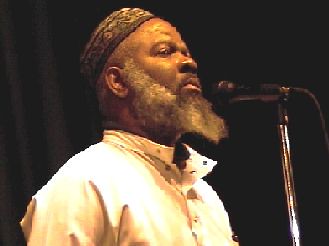
Siraj Wahaj is a well-known African-American Muslim speaker in North America, and a big supporter of Islamic causes. He's currently the Imam of Masjid Al-Taqwa in Brooklyn, New York. Born in New York as Jeffrey Kearse, he became a Sunday school teacher as a teenager, then later went to NYU where he studied Math education. In the 1960's, he became attracted to the Nation of Islam, then later found mainstream Sunni Islam. He changed his name to Siraj Wahaj, which means "Bright Light" in Arabic, and was chosen to receive Imam training at the Ummul Qura university of Mecca in 1978. he also briefly taught a course in Islamic studies at Howard University.
He started his own mosque in 1981 in a friend's Brooklyn apartment. They moved the furniture from the living room to the bedroom so that 25 people could pray toward Mecca. Soon afterward, the congregation, known as Masjid At-Taqwa, bought an abandoned clothing store at a city auction for $30,000 and converted it into a mosque. Today, it is a well-known mosque in New York City.
Imam Siraj has been Vice President of ISNA (Islamic Society of North America) since 1997 and has served on the Majlis Ash-Shura, a consultative council of Islamic scholars, since 1987. He is also a member of the Board of Advisors for the American Muslim Council. He has appeared on several national television talk shows and interviews in America, and was the first person to give an Islamic invocation to the United States Congress.He's well-admired by Muslims in New York at the very least, he led his Brooklyn community in an anti-drug patrol in Brooklyn, New York in 1988, which was a success and put a dent in the drug trade in Bedford-Stuyvesant, and received high praise from the NYPD for his efforts.
He's a fairly prolific speaker, at least in America. He makes many appearances at the major North American Muslim conventions, and numerous forums and lectures in the Northeast US alone. There are many audio lectures given by him in English available online, with titles like "Allah's Word is Supreme," "Are You Ready To Die?" "Confusion of the Ummah," "Control Your Anger," "Easy Way To Paradise," and "Good Or Bad Company:How To Judge."
Friday, May 13, 2005
najee ali and project islamic h.o.p.e.
I just wanted to highlight:
interview with Najee Ali at playahata.com
an interview with Najee Ali at Blackelectorate.com
also, an open letter to Russell Simmons from Najee Ali is available at the Universal Zulu Nation website (along with a whole series of other pieces by activists calling for a more principled take on hip-hop culture).
Thursday, May 12, 2005
remember imam jamil al-amin


A recent conversation made me think about what kind of work (political activism, community services, rehabilitation programs etc.) orthodox Muslims have been doing (or not doing) in the inner cities. And a related question is which Muslim leaders stand out in terms of their stature in urban communities?
One obvious choice to consider is Imam Jamil Al-Amin (formerly H. Rap Brown)
Imam Jamil Abdullah Al-Amin was born Hubert Gerold Brown, the youngest of three children, in Baton Rouge, Louisiana, on October 4, 1943. He acquired the nickname “Rap” from the streets (growing up) as a result of his impressive dexterity with language, combining keen intellect with blunt coarseness.
He attended Southern University from 1960-64. In 1964, he moved to Washington, DC, and became politically involved in the Student Nonviolent Coordinating Committee (SNCC). In May 1967, at the age of 23, H. Rap Brown was elected chairman of SNCC, succeeding Stokely Carmichael.
By 1968, much of SNCC’s leadership had merged into the Black Panther Party for self defense, which had been organized in Oakland, California, by Huey P. Newton and Bobby Seale; Brown would become the organization’s Minister of Justice.
In 1969 Brown’s first book was published entitled, Die Nigger Die! (publ., Dial Press
He is perhaps most famous for his proclamation during that period that "violence is as American as cherry pie".
He was arrested in a shoot-out in 1971 in New York.
He spent five years (1971-1976) in the Attica Prison after a robbery conviction. In prison, Brown converted to Islam and changed his name to Jamil Abdullah al-Amin.
Paroled from prison in 1976, he moved to Atlanta, Georgia, opened a community store and became the Imam (leader) of the Atlanta Community Mosque.
While H. Rap Brown was known for his fiery rhetoric and in your face confrontation, Jamil Al-Amin was known as a quiet, mild-mannered, stabilizing force in Atlanta’s West End community. In the words of 73 year old Hattie Stegall, “I never saw him angry. When someone would die in my family, he would come by and offer his hand. And when the Muslim children would fight my grandchildren, he would make them come to me and apologize.”
Imam Jamil would grow to lead a national community of Muslims, with members scattered around the US and Caribbean.
When Jamil Abdullah Al-Amin moved into Atlanta’s West End, it was reportedly a crime ridden section of the city known for prostitution and drug proliferation. Under Imam Al-Amin’s leadership, Muslims led a renaissance which has resulted in the West End becoming a source of pride for the city of Atlanta. Despite this, however, the Imam’s past coupled with his [Islamic] ori entation would serve as a lightning rod for additional struggle.
On August 7, 1995, Imam Jamil Al-Amin was arrested in connection with the July shooting of a young man who was pressured by authorities into identifying Al-Amin as his assailant. Even members of Atlanta’s Police Department openly expressed amazement when agents of the FBI, the FBI’s Domestic Counterterrorism Task Force and the Bureau of Alcohol, Tobacco and Firearms became involved in a case that the police themselves described as “a routine aggravated assault.” The charges were later proved unfounded and dropped.
In 2002, he was found guilty of killing a Fulton County, Georgia sheriff's deputy and wounding another in a gunbattle at his store. He was sentenced to life imprisonment. (The nature of the evidence against the imam is questionable, and you can read more about the case in the links below)
Just some background on Imam Jamil Al-Amin's case:
from the Student Alliance for Imam Jamil the Peace and Justice Foundation and the Unofficial Website on Imam Jamil Al-Amin and here is another summary of Jamil Al-Amin's life and impact on his community.
Actually, the Peace and Justice foundation website also has a number of links dealing with some past and recent political questions of possible interest to Muslims in the US as well (Amina Wadud, Sudan, the Diallo shooting, the US presidential election, etc.)
Wednesday, May 11, 2005
millions more marching
Trying to be a Muslim
Not the five, but the hundred percent
I repent, because only God is perfect
I make a mistake, a double-take, a retake,
intake forgiveness, mercy from the Merciful
Never find pork on my fork
or beef on my plate
I relate to all that's in existence
don't give me no resistance
don't test me
the cops, they can't arrest me, because I don't do nothing shady..
Malcolm was played by the Nation
slayed by the Nation
I think we've been delayed by the Nation
A million men facing all in one direction
Common called it resurrection
but I don't see the ascension because
The ghetto is still the ghetto
The man is still the Man
A snake is still a snake do you think you can understand why
The ghetto is still the ghetto
The man is still the man
A snake is still a snake so can you help me understand.
And the rest is hip-hop non-history...
I'm sharing because the 10 year anniversary of the Million Man March is coming up and Farrakhan is planning another gathering on the mall under the umbrella of the Millions More Movement.. And of course, contraversy is already being stirred up about the event.
Abe Foxman of the ADL has called on African-American leaders to reconsider supporting the event because it is being organized by Louis Farrakhan (of the Nation of Islam) and Malik Zulu Shabazz (of the New Black Panther Party) on the grounds that they are anti-semites.
Russell Simmons released a good response which you can read at Adisa's Holla at a Scholar blog.
(Actually, the past couple of entries over there have been really interesting, but anyway...)
The crux of the statement to Abe Foxman is as follows:
Simply put, you are misguided, arrogant, and very disrespectful of AfricanAmericans and most importantly your statements will unintentionally orintentionally lead to a negative impression of Jews in the minds of millionsof African Americans. Similar to how you single-handedly caused millions of persons to flock to see the ³Passion of Christ² in defiance of your call for non-attendance, you are going to precipitate a tremendous negative defianceof your demands that will again severely hurt and harm relations between Jews and African Americans.
You should refrain from pressuring African American leaders to denounce Minister Farrakhan and the Millions More Movement. This commemoration is as a real opportunity for establishing healing, reconciliation and fostering amore effective environment for constructive dialogue between Blacks and Jews. We want a society and world were there is no hatred, anti-Semitism,violence, or poverty.
There is a disturbing pattern, and this is just a recent example, of Jewish Americans condemning certain Black leaders, based on accusations of anti-semitism. From Malcolm X, to Jesse Jackson, to Amiri Baraka, to Stokley Carmichael (Kwame Toure). The accusations are often made based on isolated comments taken out of context. And the accusation of anti-semitism is often used to entirely dismiss and ignore any other significance a person's life might have.
What is also disturbing is the obvious double-standard involved in how American society views racism in its leaders. Senator Trent Lott can look back nostalgically at Jim Crow and the Confederacy without suffering serious political consequences. Senator Jon McCain can use the racist term "gook" without reservation and then refuse to apologize (at first) for it, and he's still considered a highly respected member of congress.
It would be wonderful if we lived in a world where all forms of racism were opposed. But it seems clear that in some cases, outdated accusations of racism are being cynically used in order to silence certain voices. I wonder if there is any prominent Black leader, opposed to the brutal extremes of Zionism, who hasn't also been accused of anti-semitism?
The way Russell Simmons brought up the Passion raised an interesting issue. I'd always thought that Abe Foxman's opposition to Mel Gibson's film seemed in alot of ways, insincere and misdirected. The film was a relatively faithful portrayal of the Biblical account (When Pope John Paul II saw it, he is reported to have said "It is as it was"). In any case, the portions of the movie which Foxman and the ADL objected to, are based on passages which are ACTUALLY found in the Bible. So if the movie is really anti-Semetic, then ultimately so is Biblical Christianity. And if that's the case, then protesting and criticizing a beloved Christian film is like using a flyswatter against an elephant. You are only going to make him mad.
By the same token, if having the Black community come together in D.C. means embracing the entire ideological spectrum of Black organizations and movements (which obviously includes the Nation of Islam and the New Black Panther Party) and Abe Foxman actually expects Black leaders to disown Farrakhan on his say so, he is only going to make the elephant mad.
Now with that said, of course there are disagreements between orthodox Muslims and the Nation of Islam, and even between the original Black Panther Party and the so-called New Black Panther Party.
And there is certainly room for us to criticize the organizers of the Millions More Movement on our own terms, and for own reasons, but it is counter-productive to do so because outside organizations command it.
.....
Here is an interesting 1998 interview with Mos Def in the San Francisco Bay Guardian about Khalid Muhammad and one of the Million Youth Marches
Tuesday, May 10, 2005
free islamic books online
Some I would recommend are:
"Ulum al-Quran" by Ahmed Von Denffer
"Toward Understanding Islam" by Maududi
"The Ethics of Disagreement in Islam" by Taha Jabir al 'Alwani
There are a number of works by Yusuf al-Qaradawi there too. I've only read "The Lawful and Prohibited in Islam" which seemed to me a really nice book with good explanations of the various do's and don'ts. I found it really useful as a beginning Muslim. But I was surprised to find out that in some circles Qaradawi is a very contraversial figure.
Also, a number of the Islamic pages in my links section have a pretty substantial collection of writings as well. Especially the Hizmet Books site which has a number of texts, many of which are from a Hanafi perspective. I especially like "Belief and Islam" and "The Sunni Path" which give some really nice descriptions of certain concepts, even though at times the English is a little spotty.
Monday, May 09, 2005
nicomedes santa cruz
shaggy flores
Jaime Flores is better known as Shaggy the Modern Day Griot, Nuyorican, Massarican, Bilingual, Spanglish Speaking, AfroTaino, Revolutionary, Santero Poet from the Dark Souls Collective.
I think he's a good counter-example which helps reveal some of the limitations of the earlier article on Black Hispanics. If you look at his website, he is obviously light-skinned (although darker than Michael Jackson...lol) at the same time he is obviously joyfully identifying with African component of his Puerto Rican heritage.
Perhaps in certain contexts, it is more useful to think of Latinos in terms of Indo-Hispanics (somewhere along a continuum between white and Indian) or Afro-Hispanics (somewhere along a continuum between white and African). And then we should realize that culture is often very often not reflected by phenotype (how people look).
what race are hispanics?
Both this article and the previous one are from a site called Hispanic Trending which seems to be about how business can best advertise and market their goods to the Latino market. I guess that could be a good thing if it helps corporations to serve Latino consumers better and results in more relevant producucts, and helps maximize Latino buying power. It also would be good to helo Latino-owned businesses in Latino communities be more effective. But if neither of those things is happening I wonder if the net effect is just to help wealth flow out of the community.
Sunday, May 08, 2005
black hispanics struggle for their racial identity
Black Hispanics struggle for their racial identity
Actually, the more I think about it, the more problematic I find the article, and I think the topic should have been covered alot better. But it is sort of interesting that the article appeared at all.
vacation pictures
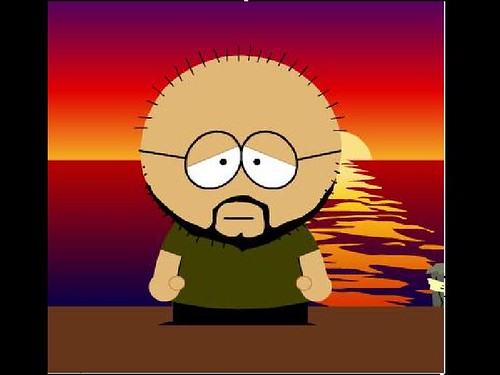
I noticed that a couple of blogs had pictures that looked like they came out of South Park so on a hunch I did a search, and found this site.. There are a decent number of options available (in terms of hair, expressions, clothing, props, etc.), but once you have the image you need to do a screen capture and manipulate it with some other program like Adobe. Anyway, enjoy.
Saturday, May 07, 2005
the notorious p.o.p.e.
two muslim girls being detained in ny
have been in detainment for over a month now, and are suspected of involvement in a suicide-bombing plot.
Two teen girls in custody after bomb plot is feared
The Associated Press
NEW YORK — Two 16-year-old girls have been detained since last month on immigration violations amid concerns that they were potential recruits for a bomb plot that never materialized, officials said Thursday.
The girls — one from Bangladesh, one from Guinea — were picked up by authorities March 24 and put in a detention center, the officials said. They had been living in New York.
Details about the case, first reported Thursday by The New York Times, were sketchy, and a supporter of one of the girls said the accusations are false.
The Times cited a government document in which the FBI said the girls posed “an imminent threat to the security of the United States based upon evidence that they plan to be suicide bombers.”
Two law enforcement officials confirmed the content of the document, but suggested that it might have exaggerated the threat.
Investigators were concerned that girls might be recruited in the future for a suicide mission by a suspect in an ongoing terrorism investigation, one official said. They decided to detain the two before they could become involved.
The law enforcement officials declined to discuss the terrorism investigation. Calls to the FBI's New York office were not immediately returned.
Marc Raimondi, a spokesman for U.S. Immigration and Customs Enforcement, confirmed that two juveniles had been arrested on “administrative immigration violations” and remain in custody.
Friday, May 06, 2005
kingdom of heaven
On the other hand, I haven't yet seen the movie so what do I know.
different trajectories: quraysh ali lansana
On September 13, 1964, Quraysh Ali Lansana was born Ron Myles, the African American great grandson of a full blooded Tsalagi Cherokee. Sixth child. Youngest child. Second boy. Not completely on his parents' agenda, in a crowded two-story house in a culturally diverse, working class neighborhood in Enid.Reading this made me sad. I don't remember how I first heard about Lansana (several years ago), but his name obviously made me wonder if he was Muslim. As it turns out, he was, but not any more. I don't think it's a widely discussed phenomena, but in every religion there will be individuals who are attracted to a particular community, but then later on come to believe that it isn't for them. Amiri Baraka, Sonia Sanchez, and even Wesley Snipes are examples of people in this category, who would have identified as Muslims but then later on moved away.
Five months later. Three gunmen would rush the stage at the Audubon Ballroom and shoot Malcolm X fifteen times. Three years later. Martin Luther King Jr. would step onto the balcony of the Motel Lorraine. Such was the air of Ron's childhood environment, in a home shared by politically active older siblings.
[...]
In 1992, "Brother" Ron Myles converted wholly to Islam. He embraced Islam out of a need for faith, hope and discipline, three things it achieved for him in his life.
On May 1, 1992, buildings in Los Angeles were still smoking from the exploding streets after police were acquitted of the beating of Rodney King. Ron Myles stretched out on his bed, a mattress on a platform in the middle of the main room in the downtown Chicago loft space he shared with Yusef Shabazz, the drummer for the poetry band The Funky Wordsmyths. Ron felt as if he was floating in space, as if he was the huge dark that filled the room. Through the window, he could see the South side skyline bleeding.
He had been studying Sunni Islam since 1991, and on that night he turned to the Quran. After praying and meditating, Ron came across the surah of the Quraysh. The Qurayshi. Part of the blood family of the Prophet Muhammad. Caretakers of the Ka' Ba. It was on that night, the young, idealistic man known as "Brother" Ron Myles, deeply immersed in faith and politics, adorned himself Quraysh. And Ali, which means "The Greatest."
On July 25, 1996, as Quraysh wed his beloved Emily, chief Khalilu of Moselolo, their Yoruba babalawo (priest), bestowed the name Lansana upon the two of them. Lansana. From the Mende language of central West Africa, the Sierre Leone area. Lansana. "Storyteller."
The name change was spiritual. Political. It was a method of self-definition and preservation. It freed Quraysh from the shackles of western hegemony.
But there would come a time in his life when even Islam would become an issue of identity for Quraysh. As he matured, he found the jihads in ancient Africa harder to wrap his head around. He observed faithfully until 1997, then he decided to stop observing the tenets of Islam. Though he no longer refers to himself as Muslim, the reasons why he changed his name are as profound for him today as they were in the early 90’s, and Islam continues to be a great part of how Quraysh sees and moves through the world
I don't know if this is a factor in the cases of the above individuals, but in general, as a community we could probably be doing more to create stronger, more welcoming, attractive Islamic communities; making sure that the young generation growing up in the West, and the new converts coming into the deen have a nurturing place to encourage their growth as Muslims.
Thursday, May 05, 2005
muslim roots of american blues
marvin x
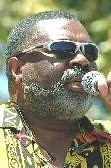
The starting point for Muslim American literature is Marvin X.
--Mohja Kahf, Professor of English and Islamic Studies, University of Arkansas
The most important African American Muslim poet in the United States.
--Julius E. Thompson, African American Review
I'd seen Marvin X's name (who also goes by Maalik El Muhajir) pop up in a few poetry anthologies but it wasn't till now that I could find out much about him or get a sense of where he was coming from. A lot of his focus has been working on poetry and theatre projects as a part of the Black Arts movement in California, where he achieved a certain degree of prominence. But he has certainly not just a local figure. His poetry has even appeared on Al-Jazeera
Some of his religious perspectives are more explicit in the poem "What if there was no God but God" and in the outline for a project called "Toward A Radical Spirituality" Both are available here along with a large sample of some of his other works.
......
Obviously, Marvin X came to identify as "Muslim" through the Nation of Islam, but it isn't clear to me where he stands now in terms of certain problematic doctrines. It brings up the whole general issue of what is the best way to think of the Nation of Islam and the people who went through that experience.
It is clear that there are a large numbers of American Sunni Muslims today who wouldn't be Muslim at all if it weren't for the direct or indirect actions of the Nation of Islam. Some actually became members of the Nation, and held on when W.D. Muhammad reformed the organization more towards orthodoxy. Others were never members, but were intrigued by the charisma of individuals like Malcolm X or Farrakhan, but then on futher investigation, found their way into the fold. But either way, that was the means Allah chose to bring Islam to a huge section of the ummah in America. So instead of demonizing the group categorically, or giving them nasty nicknames like the Nation of Kuffarrakhan or alienating them in other ways, it makes more sense to think of them as a valuable and perhaps necessary transition point. Arethey where they should be in terms of correct belief? Probably not. But you don't win hearts over by insulting them.
Although there are still issues of concern, Farrakhan has been encouraging his followers to follow the pillars in a more orthodox fashion. And in recent years there have been some moves towards reconciliation between the Nation of Islam under Farrakhan (there are actually multiple organizations who use the name) and the more orthodox W.D. Muhammad. On top of that, I've known a "card-carrying" member of the Nation of Islam who has told me that they never believed that Fard was Allah (in spite of what other members might believe) This isn't to say that the Nation of Islam are Ahl al-Sunnah wal Jamaat (in the sense of following one of the four Sunni schools in matters of fiqh, and either the Ashari or Maturidi schools in matters of aqueeda). But orthodox or not, I'm only suggesting that members of the organization can be Muslim.
